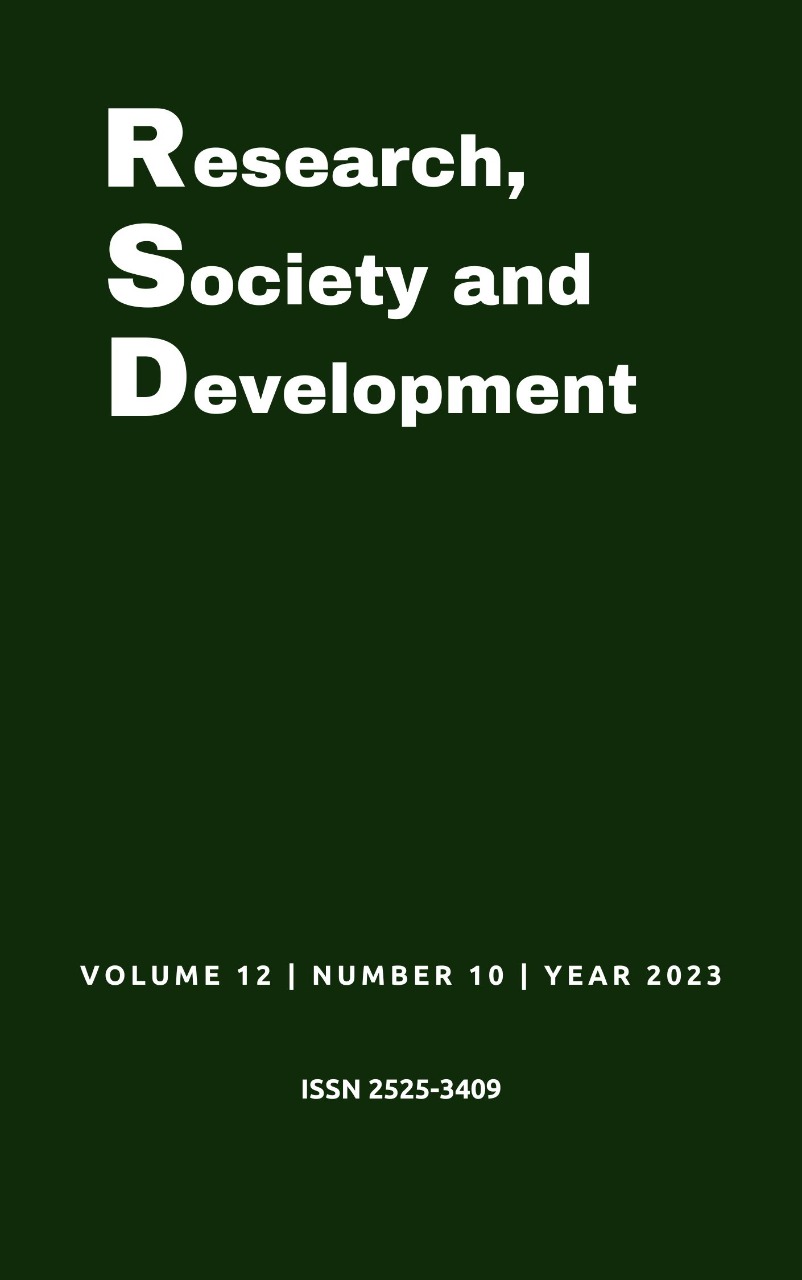International Public Law and Human Rights in contemporary times: General aspects, protection mechanisms and the case of refugees
DOI:
https://doi.org/10.33448/rsd-v12i10.43437Keywords:
Public international law, Human rights, Protection of refugees.Abstract
The scientific article in question addresses the role of Public International Law and Human Rights in contemporary times, focusing on the protection of refugees, in order to explore the role of international treaties in the implementation of human rights, highlighting their connection to signatory States. In this way, the research aims to understand how Public International Law and international organizations act to protect human rights in contemporary times, especially in relation to refugees. The research is justified by the importance of human rights after the Second World War and the growing issue of refugees around the world. The need for Brazil to get involved in global issues related to human rights also stands out. The discussion on refugees is crucial given the current crisis in Venezuela and elsewhere, and turning a blind eye to this issue could compromise human rights gains. The methodology includes a descriptive and qualitative approach, based on bibliographical research and analysis of international treaties and conventions. The study hopes to contribute to the theoretical understanding of the topic, since the protection of Human Rights and the reception of refugees are global challenges that require a cooperative approach and respect for the international legal system, aiming to promote human dignity.
References
Albu, D. (2019). UNHCR Global trends report: forced displacement in 2018. Drepturile Omului, 114.
Almeida, C. de S. (2015). Teoria geral dos direitos humanos. Juris Way. https://www.jurisway.org.br/v2/dhall.asp?id_dh=15504
Barreto, L. P. T. F. (2010). Refúgio no Brasil: a proteção brasileira aos refugiados e seu impacto nas Américas. UNHCR, ACNUR Agência da ONU para Refugiados.
Bernardon, A. C. (2021). A proteção social aos refugiados acolhidos no Brasil: a ofensiva neoliberal na corrosão da materialização dos direitos humanos. [Dissertação de Mestrado em Serviço Social, Pontifícia Universidade Católica do Rio Grande do Sul]. Repositório Institucional PUCRS. https://meriva.pucrs.br/dspace/handle/10923/18035
Bessa, A. A. S. (2023). Direito Internacional e Direitos Humanos dos Refugiados: uma análise sobre a aplicação no Brasil. [Trabalho de Conclusão de Curso, Pontifícia Universidade Católica de Goiás]. Repositório Institucional PUC Goiás. https://repositorio.pucgoias.edu.br/jspui/handle/123456789/6321.
Bobbio, N. (2004). A era dos direitos. Editora Elsevir.
Brasil. (1988). Constituição da República Federativa do Brasil. Brasília: Câmara dos Deputados.
Brasil. (1997). Lei nº 9.474, de 22 de julho de 1997. Brasília: Diário Oficial da União, nº 140, Seção 1, p. 1. http://www.planalto.gov.br/ccivil_03/leis/l9474.htm.
Brasil. (2017). Lei nº 13.445, de 24 de maio de 2017. Brasília: Diário Oficial da União, nº 99, Seção 1, p. 1. https://www.planalto.gov.br/ccivil_03/_ato2015-2018/2017/lei/l13445.htm
Cançado Trindade, A. A. (1997). Tratado de Direito Internacional dos Direitos Humanos. SA Fabris.
Cardoso, M. R. G., de Oliveira, G. S., & Ghelli, K. G. M. (2021). Análise de conteúdo: uma metodologia de pesquisa qualitativa. Cadernos da FUCAMP, 20(43). https://www.revistas.fucamp.edu.br/index.php/cadernos/article/view/2347/1443.
Da Rocha, A. B., & Guerra, S. (2019). O direito internacional dos refugiados e a eficácia acerca do sistema brasileiro de concessão de refúgio. Revista de Direito da Unigranrio, 9(1). http://publicacoes.unigranrio.edu.br/index.php/rdugr/article/view/5601
Husek, C. R. (2017). Curso de direito internacional público. Editora LTr.
Jubilut, L. L., & Amaral Júnior, A. do. (2007). O Direito internacional dos refugiados e sua aplicação no ordenamento jurídico brasileiro. [Dissertação, Universidade de São Paulo] Repositório Institucional USP. https://repositorio.usp.br/item/001360860
Lafer, C. (1995). A ONU e os direitos humanos. Estudos Avançados, 9(25), 169-185. https://doi.org/10.1590/S0103-40141995000300014
Rosa, M. A. & Canto, B. V. (2022). O Direito Internacional dos Refugiados e o princípio do non-refoulement: a possibilidade de seu reconhecimento como norma de jus cogens a partir dos sistemas europeu e interamericano de direitos humanos. E-Civitas, 14(2), 168-206. https://revistas.unibh.br/dcjpg/article/view/3259/pdf.
Mazzuoli, V. D. O. (2011). Curso de direito internacional público. Editora Revista dos Tribunais.
Pereira, A. S., Shitsuka, D. M., Parreira, F. J., & Shitsuka, R. (2018). Metodologia da pesquisa científica. UFSM.
Queiroz, R. M. R., & Feferbaum, M. (2022). Metodologia da pesquisa em direito. Editora Saraiva.
Santana, B. S. (2020). O conceito jurídico de refugiado sob o prisma dos direitos humanos e o papel de destaque da América Latina na efectivação do direito internacional dos refugiados. In Direitos fundamentais e inovações no direito (pp. 85-94). Instituto Iberoamericano de Estudios Jurídicos.
Downloads
Published
Issue
Section
License
Copyright (c) 2023 Esley Porto; Rhuan Rommell Bezerra de Alcantara; Yuri de Lima Ribeiro

This work is licensed under a Creative Commons Attribution 4.0 International License.
Authors who publish with this journal agree to the following terms:
1) Authors retain copyright and grant the journal right of first publication with the work simultaneously licensed under a Creative Commons Attribution License that allows others to share the work with an acknowledgement of the work's authorship and initial publication in this journal.
2) Authors are able to enter into separate, additional contractual arrangements for the non-exclusive distribution of the journal's published version of the work (e.g., post it to an institutional repository or publish it in a book), with an acknowledgement of its initial publication in this journal.
3) Authors are permitted and encouraged to post their work online (e.g., in institutional repositories or on their website) prior to and during the submission process, as it can lead to productive exchanges, as well as earlier and greater citation of published work.


